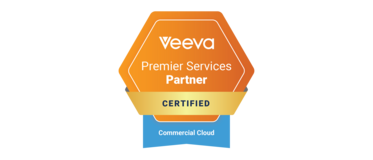
Everything at a glance: CRM Operations Management in the Life Sciences Industry
CRM systems play an important role in many sectors, including the life sciences industry. At Sycor, individuals - or even entire teams - take care of the smooth operation and further development of a customer CRM system after its introduction - whereby we have the CRMs of various providers in our portfolio. We refer to this role as “CRM Operations Manager”.
We asked our colleague Alexander Frass, who works as CRM Operations Manager, what this role entails, what his tasks are and, above all, what benefits it brings for his customers.
Hello Alexander, as CRM Operations Manager, what is your job?
Simply put: to ensure that the CRM is running and, above all, that everyone can work well with it.
And when it's up and running, the (Operations Manager) has nothing more to do with it!?
It always has to be kept running. As a global cloud product, it is constantly being further developed by the manufacturer and new updates are released every quarter. These are reviewed and tested - both by me and by colleagues in other countries. What has changed for our own market and what impact do the changes have on operations? Of course, we cannot rule out misunderstandings or unforeseen events. In such cases, changes can also be rejected. And errors are rectified as quickly as possible. It is important that we as CRM Operations Managers are in the picture and can actively shape communication.

Alexander Frass, CRM Operations Manager
You communicate directly with the user?
Partly. Either we provide information or the managers do. And this communication is important, because the meaning of additional fields to be filled in or why a survey was created must be clear. The CRM Operations Manager should be able to speak for the company here. Because if the survey or the new fields are only completed by half of the employees, they make no sense.
And how do you ensure this?
We always have a view of the process and the structure of the company - and that's where the “external” perspective and the experience from many different projects comes in handy. A good organization creates fairness between managers and employees. And we try to fit in with this in order to find a good organization for the company.
Is there a customized user interface?
Of course there is! A well-adapted user interface guides the user through the process, prevents incorrect entries and can be really fun to use. Ultimately, customization helps to save costs. If there is a well-founded requirement on the table, we as CRM operations managers formulate the change request and try to coordinate it with neighboring markets. We then explain to our users what they can expect and communicate the changes.
These are more procedural and strategic issues - is there also day-to-day business?
Of course. I am in regular consultation with the customer's business managers and assess the implications of changes from the CRM system's perspective, be it new requirements, planned restructuring or new data and KPIs. It is also part of my day-to-day business to communicate with the support units in order to take up suggestions for changes or to feed back new information. Maintaining the documentation and help pages as well as providing technical advice on learning videos or training concepts are also part of the job.
How intensively do you need to be trained in technical topics?
You have to know what you're talking about. Regular certification for the CRM system is essential in order to speak the same language with experts and admins. I don't need or have administrative rights for most customers, but you have to be familiar with the object model, the data structure and the configuration options.

Are the tasks limited to the CRM?
CRM is already the leading system, but important customer, address and sales data is obtained from specialized data providers. There are also interfaces to ERP, marketing automation or HR tools. In most companies, the interaction between the systems is not the actual task of the CRM operations manager, but of the system architects. But sometimes we contribute to a solution because we know the data situation well.
Do you also train your employees?
Basically yes, but it is organized very differently. There is dedicated CRM training as part of onboarding, which is carried out by internal or external trainers. But for projects, new functions and targeted initiatives, there is often a key user structure with which I exchange ideas and qualify them accordingly so that they can play their role as multipliers, and I present new or rarely used features in quarterly recap sessions. This is very well received.
What are the advantages of an external CRM Operations Manager for the customer?
We contribute our expertise from various customer projects. Depending on the scope of the order, we work for several customers in parallel or benefit from regular exchanges with colleagues. With an outside perspective, we can contribute improvements or help to avoid dead ends. And we create freedom by relieving our customers of some of their daily business.
Thank you for these insights. The tasks associated with the CRM Operations Manager sound like a lot of responsibility. But I also understand that it is very varied and that, in addition to technical skills, it also requires industry expertise and a lot of communication.
If you also use one of these CRM systems, we can support you in the area of operations management and many other topics:
Your contact
Do you have questions on this topic, would you like more information and are you looking for an expert to help you?

Our partners
All partners











